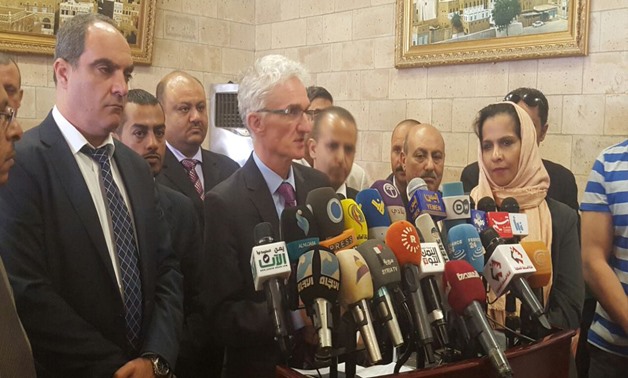
UN Emergency Relief Coordinator, Mark Lowcock's press conference in Yemen - Lowcock official Twitter account
CAIRO – 29 October 2017: The United Nations (U.N.) head of humanitarian affairs and emergency relief, Mark Lowcock, concluded on Friday a five-day mission to Yemen from October 24 to 28. This is Lowcock’s first visit to Yemen since he began work as the emergency relief coordinator in September 2017.
Lowcock said he was shocked by the horrendous suffering in Yemen and the terrible impact of the man-made conflict. He pointed out that the war should end through a political resolution.
“I came to Yemen to better understand the deteriorating humanitarian crisis, including the fastest-growing cholera epidemic the world has ever seen, the world's largest food insecurity and conditions of widespread population displacement," Lowcock said in a statement he issued at the end of his visit.
The emergency and relief coordinator met Yemeni Prime Minister Obeid bin Dagher and other Yemeni officials. He also visited Sana’, Aden, Lahj, Houdaydah and Amran governorates and listened to hundreds of stories from the Yemeni people. “Across the country, and on both sides of the frontline, Yemenis are being kept alive by brave humanitarian aid workers, working under extremely difficult conditions,” Lowcock said.
Lowcock stressed the need for more funding and better humanitarian access to the population in Yemen. He also called on all parties to respect international humanitarian law.
More than 10,000 people have been killed and millions more displaced since the war began, the U.N. reported in January. In many occasions, the U.N. described the situation in the country as the world’s largest humanitarian crisis, including the fastest-growing cholera epidemic, the world’s largest food emergency and widespread population displacement. According to the U.N., some 20 million people require humanitarian assistance, seven million of whom are severely food insecure.

Comments
Leave a Comment